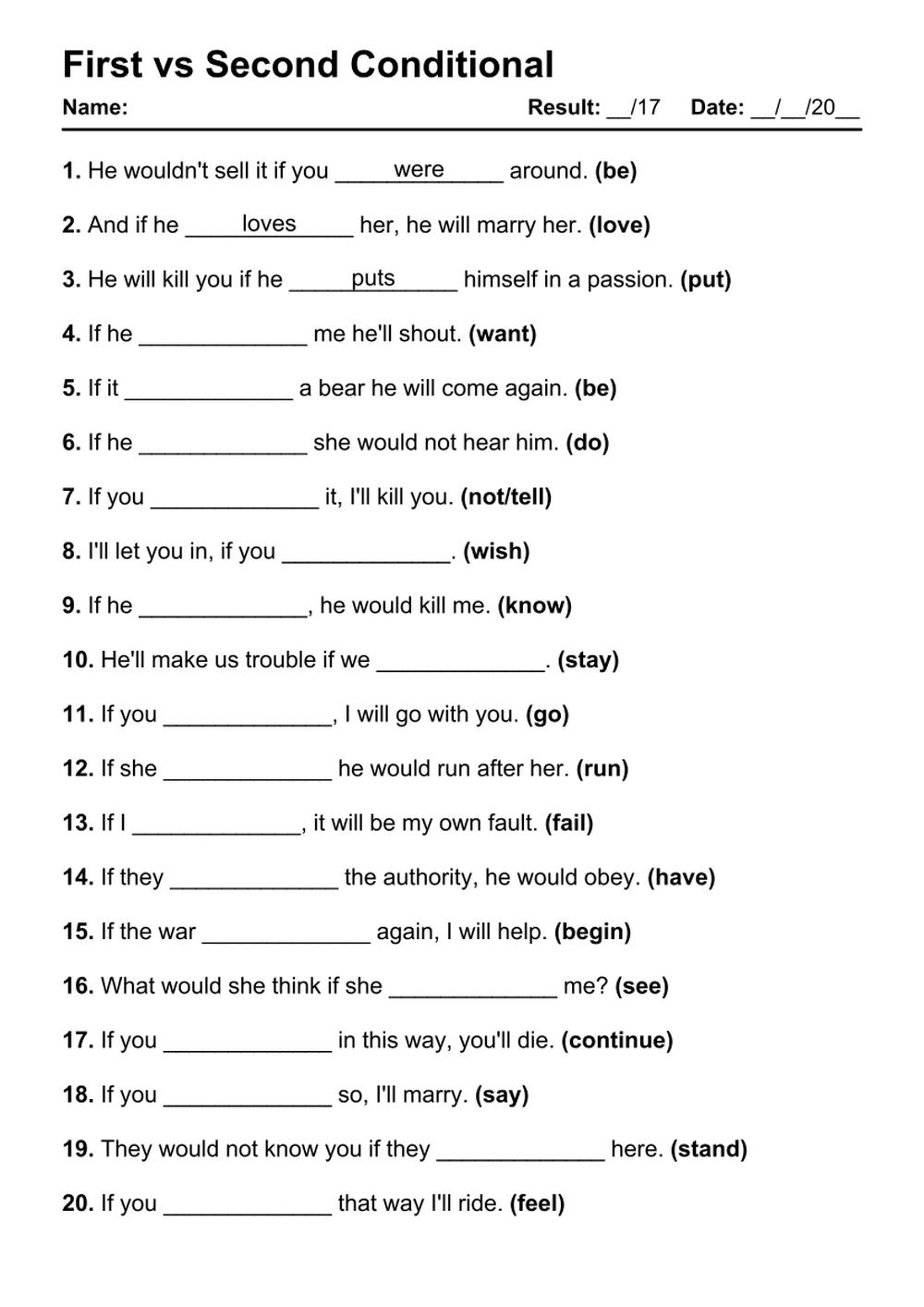In English grammar, conditionals are sentences that express a hypothetical situation and its consequences. There are different types of conditionals, but two common ones are the first conditional and the second conditional. Both of these conditionals are used to talk about possible future events, but they are used in slightly different contexts.
The first conditional is used to talk about future events that are likely to happen. It is formed by using the simple present tense in the if-clause and the future simple tense in the main clause. For example, “If it rains, I will bring an umbrella.” This sentence expresses a possible future event (rain) and its consequence (bringing an umbrella).
First Conditional vs Second Conditional
On the other hand, the second conditional is used to talk about hypothetical or unreal situations in the present or future. It is formed by using the simple past tense in the if-clause and the conditional tense (would + base form of the verb) in the main clause. For example, “If I had a million dollars, I would buy a house.” This sentence expresses a hypothetical situation (having a million dollars) and its consequence (buying a house).
While the first conditional is used for likely future events, the second conditional is used for unlikely or imaginary situations. The first conditional is often used when there is a real possibility of the event happening, while the second conditional is used when the event is less likely to happen or is purely hypothetical.
It is important to use the correct conditional in order to convey the intended meaning. Using the first conditional when talking about hypothetical situations can lead to confusion, as it may imply that the event is likely to happen. Similarly, using the second conditional for possible future events can make the sentence sound unnatural.
In conclusion, the first conditional and second conditional are both important tools in English grammar for talking about future events and hypothetical situations. Understanding the differences between these two conditionals can help you communicate more effectively and accurately in English.
